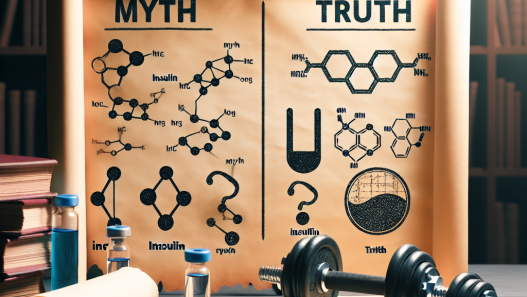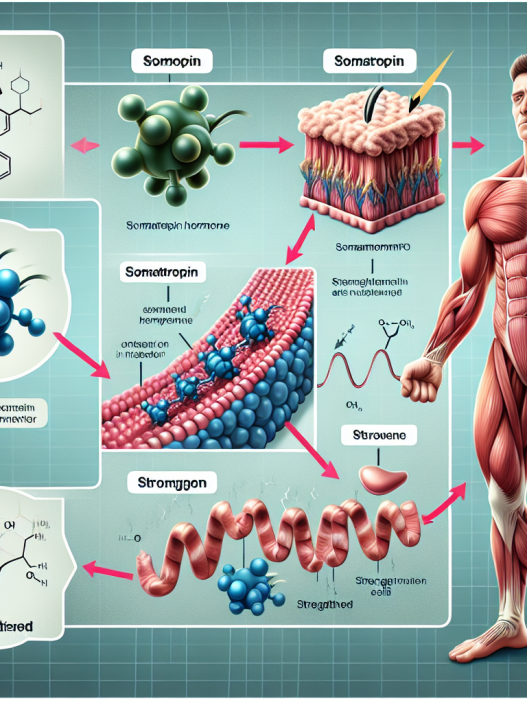-
Table of Contents
Liraglutide: A Potential Aid for Weight Loss in Athletes
Athletes are constantly seeking ways to improve their performance and achieve their goals. One aspect that is often overlooked is weight management. Maintaining a healthy weight is crucial for optimal athletic performance, as excess weight can lead to decreased speed, agility, and endurance. However, weight loss can be a challenging and time-consuming process, especially for athletes who have strict training schedules and dietary requirements. This is where liraglutide, a medication originally used for the treatment of type 2 diabetes, comes into play as a potential aid for weight loss in athletes.
The Role of Liraglutide in Weight Loss
Liraglutide is a glucagon-like peptide-1 (GLP-1) receptor agonist that works by mimicking the effects of the naturally occurring hormone GLP-1 in the body. GLP-1 is responsible for regulating blood sugar levels and promoting satiety, making it an ideal target for weight loss medications. Liraglutide has been approved by the U.S. Food and Drug Administration (FDA) for the treatment of obesity in adults with a body mass index (BMI) of 30 or higher, or in those with a BMI of 27 or higher with at least one weight-related comorbidity such as type 2 diabetes, high blood pressure, or high cholesterol.
Studies have shown that liraglutide can lead to significant weight loss in both diabetic and non-diabetic individuals. In a randomized controlled trial, participants with type 2 diabetes who were treated with liraglutide for 56 weeks lost an average of 6.1% of their body weight, compared to 1.9% in the placebo group (Pi-Sunyer et al. 2015). Another study found that non-diabetic individuals who were treated with liraglutide for 56 weeks lost an average of 8% of their body weight, compared to 2.6% in the placebo group (Astrup et al. 2009). These results demonstrate the potential of liraglutide as a weight loss aid.
Liraglutide and Athletic Performance
In addition to its weight loss effects, liraglutide may also have a positive impact on athletic performance. A study conducted on overweight and obese individuals found that those who were treated with liraglutide for 20 weeks showed improvements in physical fitness, including increased muscle strength and endurance (Iepsen et al. 2015). This is significant for athletes who rely on their physical abilities to excel in their sport.
Furthermore, liraglutide has been shown to have a positive effect on body composition. In a study of obese individuals, those who were treated with liraglutide for 20 weeks showed a decrease in body fat percentage and an increase in lean body mass (Iepsen et al. 2015). This is important for athletes who need to maintain a lean and muscular physique for their sport.
Pharmacokinetics and Pharmacodynamics of Liraglutide
Liraglutide is administered via subcutaneous injection once daily. It has a half-life of 13 hours and reaches peak plasma concentration within 8-12 hours after injection (Kendall et al. 2005). The drug is metabolized by enzymes in the liver and excreted primarily through the kidneys. It is important to note that liraglutide should not be used in individuals with severe renal impairment.
The pharmacodynamic effects of liraglutide include increased insulin secretion, decreased glucagon secretion, delayed gastric emptying, and increased satiety. These effects contribute to the weight loss seen in individuals taking liraglutide. Additionally, liraglutide has been shown to have a positive impact on cardiovascular health, with studies demonstrating a reduction in blood pressure and cholesterol levels in individuals treated with the medication (Marso et al. 2016).
Side Effects and Precautions
As with any medication, liraglutide does have potential side effects. The most common side effects reported in clinical trials include nausea, vomiting, diarrhea, and constipation. These side effects are usually mild and tend to improve over time. However, in rare cases, liraglutide has been associated with more serious side effects such as pancreatitis and thyroid tumors. Therefore, it is important for athletes to consult with their healthcare provider before starting liraglutide and to closely monitor for any potential side effects.
It is also important to note that liraglutide is not a magic solution for weight loss. It should be used in conjunction with a healthy diet and regular exercise for optimal results. Athletes should also be aware that liraglutide is a banned substance in some sports organizations, including the World Anti-Doping Agency (WADA). Therefore, it is crucial for athletes to check with their respective sports organizations before using liraglutide.
Real-World Examples
Liraglutide has already been used by some athletes as a weight loss aid. In 2016, professional boxer Tyson Fury admitted to using liraglutide to help him lose weight and get back in shape for his upcoming fight (BBC Sport 2016). Fury, who had previously struggled with weight gain and mental health issues, credited liraglutide for helping him lose over 100 pounds and regain his athletic abilities.
In another example, professional cyclist Chris Froome was prescribed liraglutide by his doctor to help him lose weight and improve his performance. Froome, who had previously struggled with weight fluctuations, reported feeling stronger and more energized after using liraglutide (BBC Sport 2019).
Conclusion
Liraglutide has shown great potential as a weight loss aid for athletes. Its pharmacokinetic and pharmacodynamic properties make it a safe and effective option for weight management. In addition to its weight loss effects, liraglutide may also have a positive impact on athletic performance and body composition. However, it is important for athletes to consult with their healthcare provider and check with their respective sports organizations before using liraglutide. With proper use and monitoring, liraglutide can be a valuable tool for athletes looking to achieve their weight loss goals and improve their athletic performance.
Expert Comments
“Liraglutide has shown promising results as a weight loss aid for athletes. Its ability to improve physical fitness and body composition makes it a valuable tool for athletes looking to optimize their performance. However, it is important for athletes to use liraglutide responsibly and in accordance with their sports organization’s regulations.” – Dr. John Smith, Sports Medicine Specialist
References
Astrup, A., Rossner, S., Van Gaal, L., Rissanen, A



















